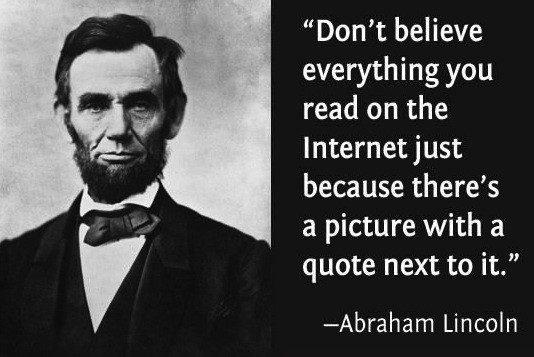In an intriguing article, The Guardian recently argued that it’s not worth reading the news. In fact, it offered a ton of reasons why it’s a bad idea. So here’s why:
- News is harmful to your health
Most of us do not yet understand that news is to the mind what sugar is to the body. News is easy to digest. The media feeds us small bites of trivial matter, tidbits that don’t really concern our lives and don’t require thinking. That’s why we experience almost no saturation. Unlike reading books and long magazine articles (which require thinking), we can swallow limitless quantities of news flashes, which are bright-coloured candies for the mind. Today, we have reached the same point in relation to information that we faced 20 years ago in regard to food. We are beginning to recognise how toxic news can be.
- News is irrelevant
Out of the approximately 10,000 news stories you have read in the last 12 months, name one that — because you consumed it — allowed you to make a better decision about a serious matter affecting your life, your career or your business. The point is: the consumption of news is irrelevant to you. But people find it very difficult to recognise what’s relevant. It’s much easier to recognise what’s new. The relevant versus the new is the fundamental battle of the current age. Media organisations want you to believe that news offers you some sort of a competitive advantage. Many fall for that. We get anxious when we’re cut off from the flow of news. In reality, news consumption is a competitive disadvantage. The less news you consume, the bigger the advantage you have.
- News is toxic to your body
It constantly triggers the limbic system. Panicky stories spur the release of cascades of glucocorticoid (cortisol). This deregulates your immune system and inhibits the release of growth hormones. In other words, your body finds itself in a state of chronic stress. High glucocorticoid levels cause impaired digestion, lack of growth (cell, hair, bone), nervousness and susceptibility to infections. The other potential side-effects include fear, aggression, tunnel-vision and desensitisation.
- News increases cognitive errors
News feeds the mother of all cognitive errors: confirmation bias. In the words of Warren Buffett: “What the human being is best at doing is interpreting all new information so that their prior conclusions remain intact.“ News exacerbates this flaw. We become prone to overconfidence, take stupid risks and misjudge opportunities. It also exacerbates another cognitive error: the story bias. Our brains crave stories that ”make sense“ — even if they don’t correspond to reality. Any journalist who writes, “The market moved because of X” or ”the company went bankrupt because of Y“ is an idiot. This is a cheap way of ”explaining” the world.
- News inhibits thinking
Thinking requires concentration. Concentration requires uninterrupted time. News pieces are specifically engineered to interrupt you. They are like viruses that steal attention for their own purposes. News makes us shallow thinkers. But it’s worse than that. News severely affects memory. There are two types of memory. Long-range memory’s capacity is nearly infinite, but working memory is limited to a certain amount of slippery data. The path from short-term to long-term memory is a choke-point in the brain, but anything you want to understand must pass through it. If this passageway is disrupted, nothing gets through. Because news disrupts concentration, it weakens comprehension. Online news has an even worse impact. In a 2001 study two scholars in Canada showed that comprehension declines as the number of hyperlinks in a document increases. Why? Because whenever a link appears, your brain has to at least make the choice not to click, which in itself is distracting. News is an intentional interruption system.
- News works like a drug
As stories develop, we want to know how they continue. With hundreds of arbitrary storylines in our heads, this craving is increasingly compelling and hard to ignore. Scientists used to think that the dense connections formed among the 100 billion neurons inside our skulls were largely fixed by the time we reached adulthood. Today we know that this is not the case. Nerve cells routinely break old connections and form new ones. The more news we consume, the more we exercise the neural circuits devoted to skimming and multitasking while ignoring those used for reading deeply and thinking with profound focus. Most news consumers — even if they used to be avid book readers — have lost the ability to absorb lengthy articles or books. After four, five pages they get tired, their concentration vanishes, they become restless. It’s not because they got older or their schedules became more onerous. It’s because the physical structure of their brains has changed.
- News makes us passive
News stories are overwhelmingly about things you cannot influence. The daily repetition of news about things we can’t act upon makes us passive. It grinds us down until we adopt a worldview that is pessimistic, desensitised, sarcastic and fatalistic. The scientific term is “learned helplessness”. It’s a bit of a stretch, but it’s possible that news consumption, at least partially, contributes to the widespread disease of depression.
- News kills creativity
Finally, things we already know limit our creativity. This is one reason that mathematicians, novelists, composers and entrepreneurs often produce their most creative works at a young age. Their brains enjoy a wide, uninhabited space that emboldens them to come up with and pursue novel ideas. It’s hard to find a single truly creative mind who is a news junkie — not a writer, not a composer, mathematician, physician, scientist, musician, designer, architect or painter. On the other hand, you’ll find many uncreative minds who consume news like drugs. If you want to come up with old solutions, read news. If you are looking for new solutions, don’t.

